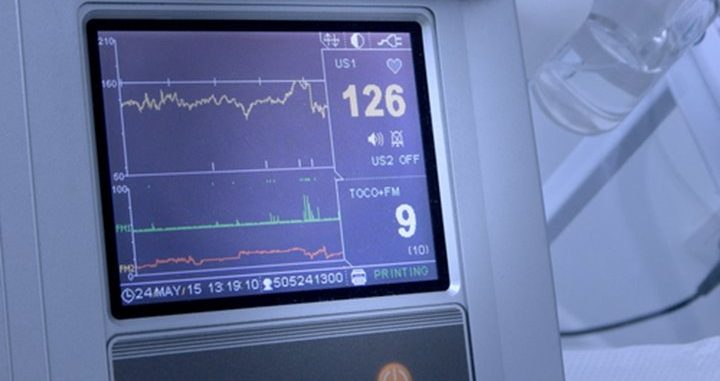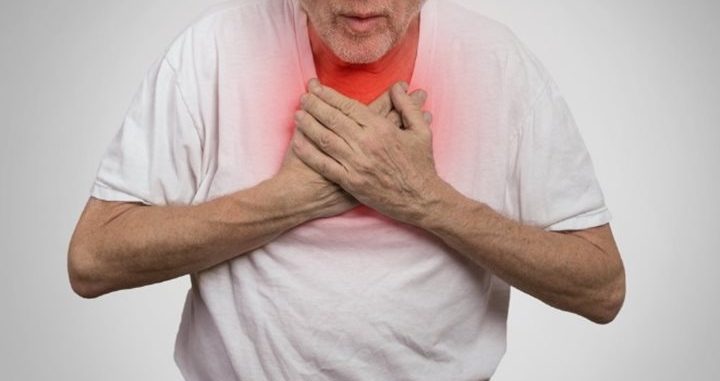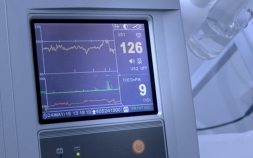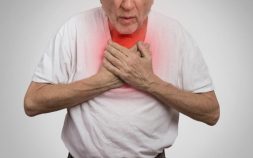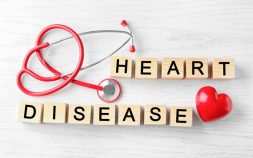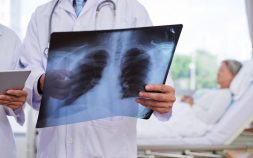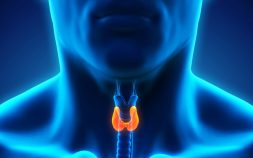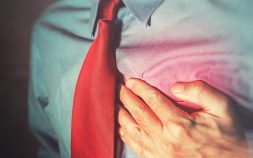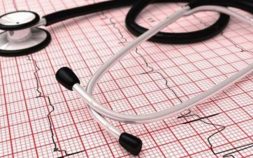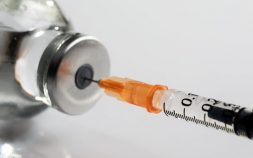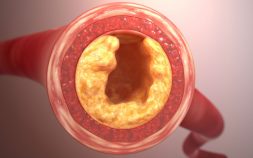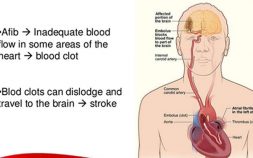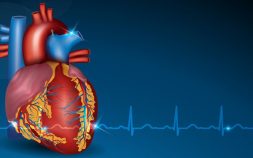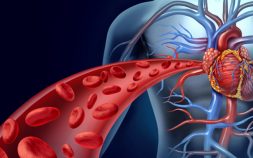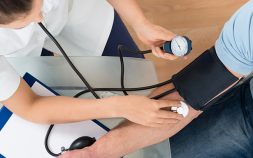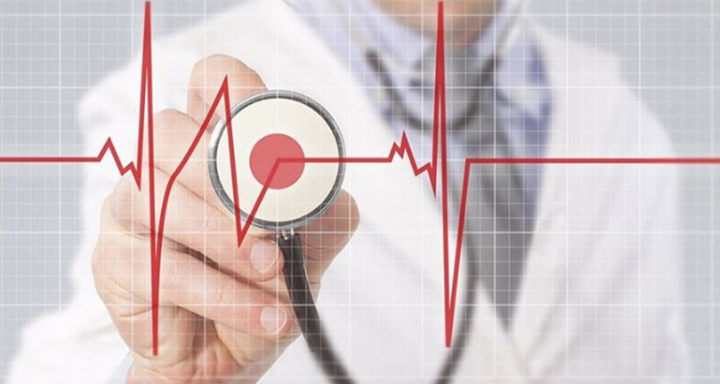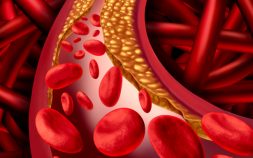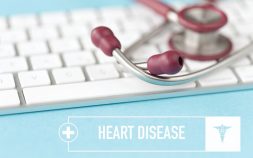-
The treatment of afib is important since it helps to slow down the heart rate, normalize the rhythm of the heart, and prevent the possibility of a stroke. When choosing the right treatments, you should follow medical guidelines from experts to the letter. This will significantly reduce the risk...
-
Chronic obstructive pulmonary disease, also known as COPD, is an umbrella term for chronic inflammatory lung diseases that obstruct the airflow and cause overproduction of mucus, chronic cough, and difficulty breathing. These conditions often develop and get worse over time a, usually due to smoking. However, there are things...
-
Have you experienced unexplained shortness of breath, lightheadedness, palpitations, chest pain, or general weakness? If yes, chances are you have atrial fibrillation (or afib as doctors commonly call it). Afib can be tricky as you can suffer from it without even knowing it. Epidemiological studies indicate that more than 3...
-
Just like every other condition, COPD comes with its very own inventive myths. Indeed there are many myths associated with chronic obstructive pulmonary disease, most of which could not be farther from facts. So instead of believing everything you hear and read about COPD, it is always recommended that...
-
If you have atrial fibrillation, also known as Afib, your doctor has likely warned you that you are at a higher risk of stroke and heart disease. You are also probably already aware that keeping this condition under control requires lifestyle adjustments such as dietary restrictions, various prescription blood...
-
Over half a million people lose their lives to heart disease in the United States alone every year. The worst thing about this large number is that some dietary and lifestyle changes are enough to lower the mortality rate of heart disease. Regular physical activity is one of the...
-
If you stay current with what’s unfolding in the medical field, you’re probably aware of one of the top health conditions running rampant today. Atrial fibrillation, or Afib, is a disorder once primarily associated with the elderly which is now seen affecting today’s younger generation. It is especially prevalent...
-
In spite of being the leading cause of death in the United States, there are so many myths available out there about the disease that do not do anyone any good. Considering how important it is to understand the disease to prevent and treat it, here are five common...
-
Atrial fibrillation, commonly known as Afib, is a condition where a patient experiences heart rhythm abnormalities characterized by rapid, irregular beating or arrhythmia. Atrial fibrillation is the most common form of arrhythmia, affecting 2% to 3% of the entire population of Europe and North America. This is millions of...
-
Atrial fibrillation (Afib) is a common condition affecting a huge percentage of the population. The condition causes fast and erratic heartbeat involving the upper chamber of the heart. Statistically, people with this condition are five times more likely to have a stroke. This is because Afib interferes with the blood...
-
You may have heard of a heart condition by the name of Atrial Fibrillation, or simply Afib, as it has become more common of late. Afib is a medical condition where the atria, the upper chambers of the heart, contract abnormally and irregularly. These rapid heartbeats are referred to as...
-
Atrial fibrillation, also known as Afib, is an irregular heartbeat that can lead to heart failure, blood clots, stroke, and other heart conditions. But what can you do if you have Afib and want to avoid kidney disease? Or what if you have both and want to avoid the dangers?...
-
Who Is Affected by Afib? Atrial fibrillation, dubbed as Afib, is a heart condition characterized by an irregular or abnormal heartbeat. This condition affects close to 3 million people in the USA and over 1 million in the UK. Approximately 2% of people with atrial fibrillation are between the...
-
Pulmonary embolism is a serious, potentially life-threatening medical emergency in which a blood clot blocks an artery that brings blood to one or both lungs. Since blood flow to the lungs is the only way oxygen can enter the bloodstream, pulmonary embolism requires treatment as soon as possible. The...
-
For proper functioning, your body requires lipids, also known as cholesterol which is produced by the liver or contained in some foods. Cholesterol on its own doesn’t cause any health symptoms, though in excess it could cause complications like heart disease. To move around the body, cholesterol combines with proteins,...
-
You may start to experience symptoms of congestive heart failure when your heart’s ability to pump blood to the rest of your body becomes impaired. Heart failure can develop gradually over time or come on suddenly after a heart attack or a disease of the heart muscle. If you...
-
An embolism occurs when a vein or artery is blocked by an embolus. Not to be confused with a thrombus (stationary blood clot), an embolus is a mobile substance confined to the blood vessels. There are several types of embolisms, depending upon the affected part of the body. The embolus...
-
Pulmonary embolism is a blockage of a pulmonary artery, which is a blood vessel in the lung. Pulmonary arteries bring deoxygenated blood from the right side of the heart to the lungs, and this allows oxygen to be absorbed by the blood. Given the role of these arteries, pulmonary...
-
A-fib, aka Atrial Fibrillation, is a medical condition characterized by irregular and fast heart rate. Without early diagnosis and treatment, it can lead to blood clots in the heart, which can lead to a devastating stroke. Thus, cardiologists often advise A-fib patients to take particular blood-thinning medications on a regular...
-
If you have atrial fibrillation, there is a good chance you will suffer a stroke. Atrial fibrillation is a type of abnormal heart rhythm in which the two upper chambers of the heart contract rapidly and irregularly without fully pumping blood into the lower chambers. Studies into AFIB and...
-
Many people suffer from high blood pressure with some of them not even realizing that they have high blood pressure to begin with. Those that know they have it try to find solutions to lower blood pressure for themselves without the use of medication. Unfortunately, sometimes proper diet and...
-
Atrial Fibrillation is a medical condition characterized by irregular, rapid heart rhythm. It primarily affects the atria, which are the two upper chambers of the heart. The arrhythmia, an irregular rhythm, is caused by abnormal electrical impulses in the heart due to a lack of coordination in atrial activity....
-
Atrial Fibrillation is becoming increasingly widespread as a whopping 33.5 million people worldwide and 2.5 million people in the United States are victims of the condition. People with this condition have five times more risk of getting a stroke in comparison to people without it. Some risk factors that...
-
The prevalence of Atrial Fibrillation is set to increase in the coming decades. Thus, physicians are trying to formulate an action plan to circumvent the growing crisis. But what is the root of the condition? While the exact cause of Atrial Fibrillation remains unknown, the disease is more prevalent...
-
Atrial Fibrillation is very commonplace today. Sadly, the main concern in patients with Afib is preventing strokes. When blood is pumped so fast and chaotically in the two small upper chambers of the heart, it forms blood clots. Those clots, then, could break free and move to the brain,...
-
Even though you probably know that certain foods can increase your chances of heart disease, making dietary changes isn’t always that easy. Whether you have bad eating habits or just want to take preventative measures with a heart-healthy diet, here are some diet tips to keep your heart in...
-
The human body can experience distress in the blink of an eye due to many different types of ailments in a variety of ways. High blood pressure, or hypertension, most commonly occurs due to age, lack of activity, poor diet, or genetics. A heightened pressure that exceeds the prehypertension...
-
Congestive heart failure is a life-threatening condition that occurs when your heart muscle fails to pump blood as efficiently as it should. Approximately 5 million people in the United States alone have congestive heart failure today. In more technical terms, heart failure occurs when there is an increase in...
-
Twenty years ago, an irregular heartbeat could just be another sign that you were aging. Now, however, Atrial Fibrillation is a growing health risk that affects millions of people in the United States. Afib can be potentially deadly. However, improvements in diagnostic tools and treatments, especially regarding blood thinners, are...
-
The heart disease mortality rate has dropped significantly over the years, but it is still a major concern and the number one killer in the United States. However, thankfully, we do have a lot of information and guidance available to us to prevent heart disease today. One fact that...
-
Atrial fibrillation (afib) is a heart-related illness that causes irregular and rapid beating of the heart. If a person regularly suffers from afib, he or she will have a higher risk of stroke, heart failure, and dementia. What’s scary about this condition is that when it occurs, it usually...
-
Heart disease is still the leading killer in the United States, so it is imperative to be familiar with the tools and strategies to keep it at bay and also prevent it from worsening or leading to further complications if you already have a heart condition. So here are...




